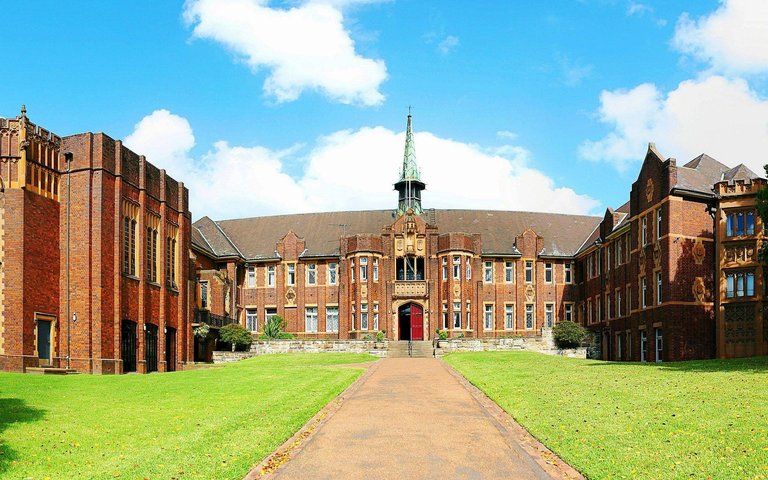LeoGlossary: University

A university is an institution of higher learning and research that grant academic degrees in various subjects. Universities are typically composed of several colleges or schools that focus on specific areas of study, such as the arts, humanities, social sciences, natural sciences, mathematics, engineering, and professional fields like law, medicine, and business.
Universities offer a wide range of academic programs, including undergraduate and graduate degrees, as well as certificate programs and diplomas. They provide students with a comprehensive education that includes lectures, seminars, workshops, and hands-on learning experiences, as well as opportunities for research and internships.
Some of the key functions of a university include:
- Teaching and learning: Universities provide a supportive environment for students to learn and develop their knowledge and skills, with a focus on critical thinking, problem-solving, and intellectual curiosity.
- Research: Universities are centers of research and scholarship, where faculty members and students conduct research in various fields, contribute to the development of new knowledge, and publish their findings in academic journals and other publications.
- Community engagement: Universities often play a significant role in their local communities, providing outreach programs, public services, and cultural events that engage and benefit the community.
- Career development: Universities help students prepare for their future careers by providing career counseling, job fairs, and networking opportunities.
- Student life: Universities offer a range of extracurricular activities, clubs, and organizations that enhance students' social and personal development, as well as their academic experience.
A university is an institution that offers a variety of academic programs, typically at both undergraduate and postgraduate levels. Here's a breakdown of its key features:
Education:
- Focus: Universities emphasize broad-based learning across various disciplines, ranging from the humanities and sciences to professional fields like engineering and medicine.
- Levels: They offer undergraduate degrees like bachelor's, which typically take four years to complete, and postgraduate degrees like master's and doctorates, which require further study and research.
- Research: Research is a crucial aspect of most universities, with faculty and students actively engaging in various fields, contributing to new knowledge and advancements.
Structure:
- Colleges and Schools: Universities are often organized into colleges or schools dedicated to specific academic areas, each offering focused curricula and resources.
- Faculty: Renowned professors and researchers with expertise in their respective fields lead classes, conduct research, and mentor students.
- Facilities: Universities provide access to libraries, laboratories, research centers, and other infrastructure necessary for learning, research, and student life.
Student Life:
- Diverse: Universities attract students from various backgrounds and with different interests, fostering a vibrant and diverse community.
- Extracurricular activities: Beyond academics, universities offer a multitude of clubs, organizations, and sports teams* providing opportunities for personal growth, leadership development, and social interaction.
- Support services: Universities provide resources and support for academic success, career guidance, mental health, and other aspects of student life.
Impact:
- Contribution to society: Universities play a vital role in educating future leaders, generating knowledge, and driving innovation across various fields.
- Economic impact: They attract talent, investments, and research funding, contributing to the economic development of their surrounding communities and regions.
Oldest Universities
Here are some of the oldest universities in the world and their founding dates:
Europe:
- University of Bologna (Italy): 1088 - Considered the oldest university in continuous operation globally.
- University of Oxford (United Kingdom): 1096-1167 - Precise founding date unclear, but known to be established between these years.
- University of Salamanca (Spain): 1218 - One of the oldest in Spain and a major center of learning throughout Western Europe.
- University of Paris (France): 1160-1250 - Dissolved in 1793 and later reorganized into multiple universities.
- University of Cambridge (United Kingdom): 1209 - home to renowned colleges like King's and Trinity, with a rich history in mathematics, science, and literature.
Middle East and North Africa:
- Al-Azhar University (Egypt): 970 - Founded as a madrasa, later evolving into a university. A prominent center of Islamic learning for centuries.
- University of Kairouan (Tunisia): 859 - One of the oldest continuously operating universities in the world, focusing on Islamic studies and theology.
Asia:
- Sungkyunkwan University (South Korea): 1398 - Established during the Joseon Dynasty, it holds significant historical and cultural importance in Korea.
- Nishida Jin'an University (Japan): 818 - Originally a Buddhist temple, it later developed into a major center of learning in Japan.
General:
Posted Using InLeo Alpha